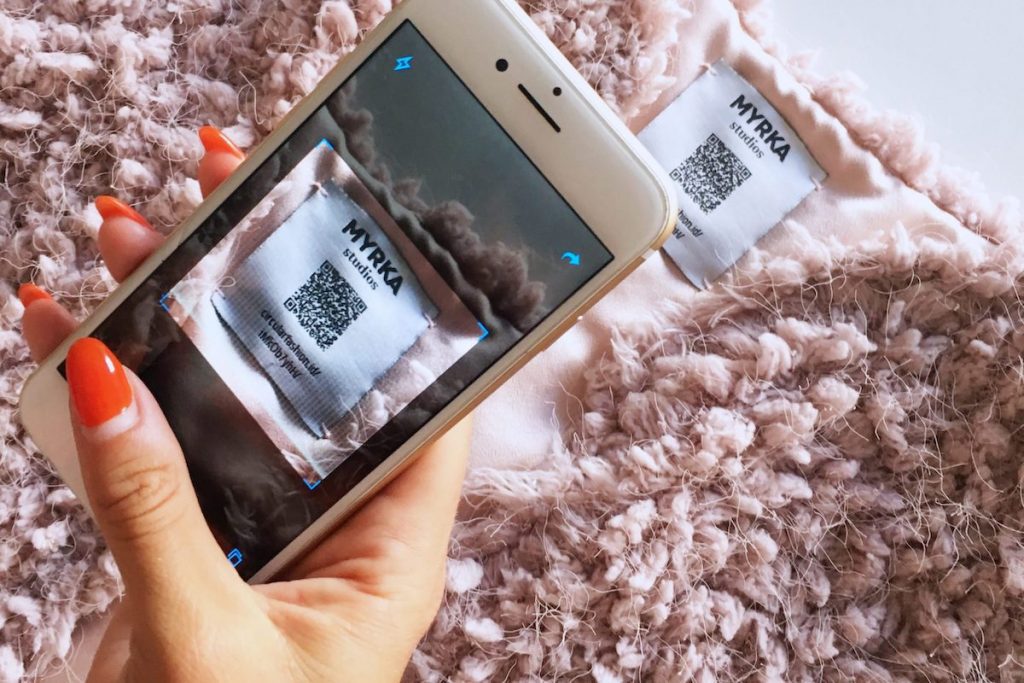Over the span of the 21st century, blockchain and cryptocurrencies have transformed the world’s major industries. This is no different in regards to fashion retail; with Paris Fashion week utilizing NFTs(non-Fungible tokens), it makes us wonder how blockchain impacts fashion retail for the future? How will the fashion industry change with this new technology?

Traceability regarding the authenticity of Item: One-way Blockchain impacts Retail Fashion.
Blockchain impacts Fashion retail through traceability
As a result of manufacturing, suppliers could use blockchain to store and share information on the origin of raw materials, including how it was grown, where it was stored, the amount shipped to the textile mill, and the number of items made. On that account, giving suppliers the ability to create a permanent, unalterable digital record of all the materials used in production. Henceforth, it allows the consumer to trace the complete provenance of their products and their underlying parts from source to sale. Thus blockchain impacts fashion retail, as simply through the QR code or NFC reader the customer gets information regarding the item they originally purchased.
The concept of utilizing blockchain devices to track clothes was famously explored in 2018 by Danish designer Martine Jarlgaard. For Jarlgaard’s partnership with A Transparent Company, Provenance, and London College of Fashion’s innovation agency, every single stage of the production process for their sweater was monitored and documented with the blockchain Provenance app.
In addition, by late 2020, Lenzing, fashion brand ArmedAngels, and wool tops producer Schneider Group collaborated with TextileGenesis, to create a trial blockchain program using traceability technology to assist the fashion industry. Thus in their first trial, blockchain impacts fashion retail, through tracking the origins of 45 garments with TENCELTM and LENZINGTMECOVEROTM trademarked fibres, as well as AUTHENTICO® organic wool, from supply chains spanning six countries.
Blockchain promotes transparency in fashion retail
The blockchain can monitor every digital or physical product throughout its lifetime, from the raw resources it used to its waste. Transparency in the supply chain tracking offers producers a bird-eye view into their value chain to ensure the appropriate handover of products and final product labeling from third parties. Blockchain can track asset progress, save data and display prior asset records. This may boost the production and consumption of all products on a sustainable and ethical basis at a world level.
By using blockchain it ensures that consumer goods, electronics, pharmaceuticals, and luxury brands, are receptive to counterfeiting and fraud. A report by PwC suggested that over 2 percent of global economic output (including the fashion industry), originated from counterfeit revenues. As a result, blockchain impacts fashion retail by boosting ethics in the business by making it simpler for the buyer to know exactly what he or she is going to acquire ahead of time.
Brands could consider using blockchain to transform NFTs(non-fungible tokens), allowing them to be easily kept, acquired, swapped, and traded. Thus it makes it easier for customers to create and verify ownership of a luxury asset on a brand’s website, which later can make the process easier for it is confirmed and transferred to another party.
Through NFTs, blockchain impacts fashion retail, as it helps luxury retail products to be tagged with a unique counterfeit-proof characteristic and tracked using digital twin technology, which links the real and digital worlds. Treum provides a number of solutions, such as RFID and image recognition machine learning technologies, to help you along your journey.
The global fashion retail market will be worth €1.3 trillion ($1.5 trillion) by 2025, with millennials accounting for half of the overall market. Nowadays, millennials and generation Z customers drive 85 percent of global luxury sales growth, meaning the expectation for premium companies to connect with their values grows. Whereas blockchain impacts fashion retail with Distributed ledger technology. This enables companies to better manage their supply chain operations from raw materials to the ultimate customer, as well as massive data sets in a more efficient and transparent manner. Brands that use blockchain technology to present this amount of information to customers will have a significant competitive edge.
Blockchain improves and reduces data management and costs in the fashion industry
Blockchain is a distributed ledger technology (DLT), meaning its method to strengthen ties between organizations and their customers gives more data integrity, security, and transparency for its services. As most blockchains have to consent, it gives businesses distinct ability to handle commercial operations extremely efficiently. Permissioned blockchains, with a more business-focused mindset, enable companies to organize access levels for their members using valid credentials.
This differs from data silos, as this instead results in inefficient procedures and major reconciliation difficulties. On a blockchain, important information is immediately added and securely shared across business divisions, operations, and partners. When trust is at risk, blockchain is the go-to solution for exchanging information.
By offering improved data management tools, improving supply chain management, and lowering the danger of counterfeit and grey markets, blockchain impacts retail fashion and luxury by potentially decreasing operational costs. While supply chain innovations and product authenticity have already been addressed, advances in data management result in cost savings through new types of Just-In-Time inventory management and increased trust in outsourcing. Blockchain enables data reconciliation across service lines and activities by providing a lightweight and simple-to-integrate layer.

fashionabc is a fashion technology platform, comprising a digital directory and various other digital tools and supply chain solutions for the fashion industry ecosystem, that focus on ethical fashion and sustainability. We are building inclusive digital transformation tools for fashion professionals who are willing to take steps towards a more sustainable ethical fashion industry, by adopting AI and DLT blockchain technology.
* building digital profile and IP solutions for fashion businesses
* tackle issues such as provenance and counterfeit in supply chain
* contribute to the construction of a meritocratic ethical fashion industry which is certified and part of the circular economy










